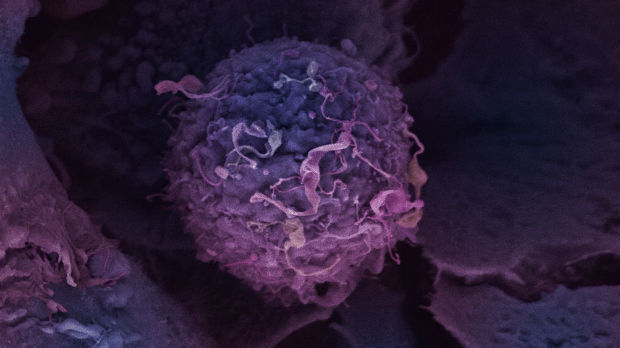First, the bad news: many older men have undiagnosed prostate cancer.
Autopsies done on 6,000, 70-79 year-old men found 36% of Caucasian men and 51% of African-American men had it, though they didn’t know it.
Medical science believes 2/3’s of all men over age 70 have prostate cancer.
Now for the good news: those 6,000+ 70-79 year-old men didn’t die from the prostate cancer. It was too small to affect them, and that’s why it was undiagnosed. They died from other causes, such as heart attack, stroke, car accidents and so on.
The large majority of that 2/3’s of all men over 70 who have prostate cancer will not die from it.
Most forms of prostate cancer are slow-growing. That is, their time to double is years. You won’t live long enough for that tumor to grow large enough to threaten your life.
Right now, only one in 41 men die from prostate cancer.
Even though one in 9 men are diagnosed with it – and many more have it but are undiagnosed.
Even most of the diagnosed tumors grow so slowly they’re not life-threatening.
The smartest move for these men and their doctors is simply to wait, and see what happens. In most cases, treating the tumor is simply not worth the effort.
Think of the risk and stress from undergoing surgery, chemotherapy and radiation treatments. The side-effects of the fight would be worse than the tumor.
According to a 2015 study done using data from Johns Hopkins, less than 1% of men with slow-growth prostate cancer being actively monitored for it died from it.
Some Prostate Cancers are Aggressive
Unfortunately, some forms of this cancer are aggressive. Frank Zappa, Stokely Carmichael and Johnny Ramone are a few examples of prominent men who died from the disease while still relatively young – in their 50’s.
Symptoms of Prostate Cancer:
* Frequent urination, especially when it gets you up during the night
* weak or interrupted urine flow
* Recent onset of erectile dysfunction
* Burning sensation while urinating
* Blood in urine
* Blood in semen
The prognosis is complicated because many older men develop benign prostate hyperplasia (BPH). That’s when your prostate swells up, but you don’t have prostate cancer. That also causes you to have trouble completely emptying your bladder and to get up frequently during the night.
Blood in your urine or semen is scary as hell, and you know you ought to get that checked out immediately. Blood in your urine can be caused by other things. I once had it along with kidney stones and a bladder infection.
The PSA Test
This tests your levels of prostate-specific antigen (PSA), and is the standard test for checking on your prostate’s health.
Unfortunately, the PSA test has a high rate of false positives. They can be caused by infection, inflammation, riding a bicycle and even having had a recent ejaculation.
The U.S. Preventative Services Task Force gives the PSA test a C grade for men aged 55-69. (They’re a watchdog agency that evaluates the effectiveness of medical tests).) That means the evidence for the PSA test’s effectiveness is limited, and men that age should get it only if they’re at high risk of prostate cancer.
For men 70 and older, their grade is D. That means not recommended at all.
If you do have it, it’s best to get have repeated over time to establish a baseline.
If You are Diagnosed . . .
Even with a positive diagnosis, for 30% of men active surveillance is the best strategy.
The procedures for treating prostate cancer are horrifying, at best.
The various surgical options used to remove tumors or roto-rooter your prostate – well, let’s bypass the gory details.
You undoubtedly know chemotherapy and radiation treatments come with a whole host of risks and side effects. They deliver poison to your body. Modern medical science has refined them, but their effectiveness still comes down to poisoning the cancerous cells more effectively than poisoning your healthy cells.
Side effects include urinary incontinence and erectile dysfunction. Sometimes they’re temporary, sometimes permanent.
In extreme cases, doctors give patients hormone treatments. Prostate cancer cannot grow without testosterone, the male hormone. Therefore, it is used in some cases of prostate cancer. It’s also known as chemical castration.
Sipuleucel-T Immunotherapy Vaccine
This is a new treatment. It’s a vaccine that’s personalized to your immune system. It changes your immune system’s programming so it seeks out and destroys the cells of your tumor.
In decades to come, as it’s developed, some form of gene therapy and immune system enhancement may become standard even for preventing all cancers. At this point, it’s highly complicated and expensive.
However, if you’ve reached that point, talk to your doctor to see if it might help you.
Treating Prostate Cancer With Lifestyle Changes
In one groundbreaking study, Dr. Dean Ornish dramatically reversed the progression of prostate cancer in men by having them eat a whole-food plant-based diet, get regular exercise and manage stress.
That may sound extreme, but so is having your prostate cored like an apple and wearing diapers for the rest of your life.
So I advise trying it.
How to Prevent Prostate Cancer
* Ejaculate 12+ times every month
* Get moderate exercise every day – at least 30+ minutes per day – and stay active throughout the day
* Eat plenty of red tomatoes (and byproducts, including tomato sauce and tomato juice) and watermelons. They contain large amounts of lycopene and other carotenoids known to accumulate in your prostate and protect it, in combination with each other. (NOTE: Do NOT take supplements. They upset the natural balance of nutrients.)
* Eat plenty of legumes: beans, chickpeas, and lentils
* Eat plenty of fresh citrus fruits and dried fruits such as raisins and dates
* Cut way down on saturated fat and all dairy products
* Meditate or otherwise handle your stress
* Eat a tablespoon of ground flaxseeds every day
* Eat unfermented soy foods, such as soybeans (edamame), soy milk and tofu
* Eat plenty of cruciferous vegetables such as kale, cabbage, red cabbage and broccoli
* Eat more pomegranates
* Drink green tea
* Stop eating fish and taking fish oil supplements – higher levels of DHA are now associated with a higher risk of prostate cancer
Remember – chances are good you already have either microscopic-sized prostate tumors or will eventually – unless you die of something else first, which is not a happy solution to the situation.
So, assume you have the problem.
All of the above suggestions are proven by studies to slow or even reverse the progression of prostate cancer.
Even if you never have prostate cancer, you’ll see an improvement in BPH symptoms.








